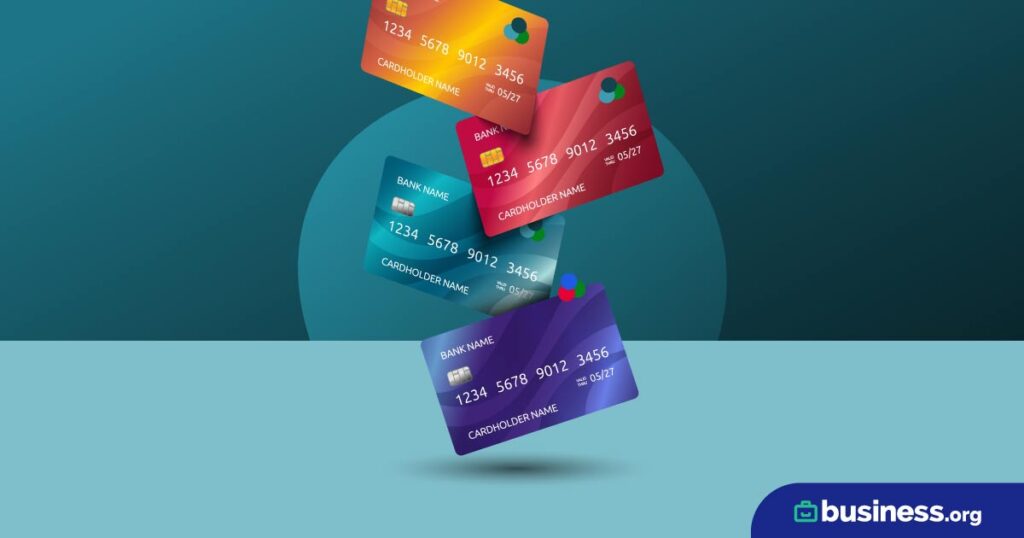We are committed to sharing unbiased reviews. Some of the links on our site are from our partners who compensate us. Read our editorial guidelines and advertising disclosure.
How to Prepare Your Small Business for Climate Change
Mike Beamish started Deep Roots Distillery, an artisanal distillery in Prince Edward Island, Canada, with a goal in mind: to create something that would have a positive impact on the environment.1
True to his goal, Beamish innovated a way to reduce water consumption by using solar energy to power the distillery.
Not only does this solution make a difference—it’s also “the most profitable,” he told Pivot, an action research project funded by the McGill Sustainability Systems Initiative that interviews small-business owners across Canada about how they’re preparing for and mitigating climate change.
In the past year we’ve seen severe weather and supply chain issues take a toll on small businesses. Beamish’s story shows that small businesses can change as the climate changes. As one of the issues at the forefront of our global conversation, climate change is dictating new rules for businesses.
Small steps become giant strides
Scientists reported 2021 as one of the seven warmest years on record.2 Reducing consumption and emissions are two of the best ways to limit the effects of climate change.3 “If I take a small step, then my neighbour will take one, and then ten other neighbours will, too,” Beamish told Pivot. “It eventually turns into giant strides. We started by making use of fallen apples.”
The innovation at Deep Roots Distillery echoes what Tom Drennen, a professor of economics and environmental studies and chair of entrepreneurial studies program at Hobart and William Smith Colleges, told Business.org in an interview. (Drennen and I worked together at the Environmental Studies Summer Youth Institute on campus in 2019 where he taught a course on energy.)
“Larger companies might be too entrenched—or it’s too hard to make changes or think outside the box,” Drennen continued, “but this is where smaller companies really should be able to think, ‘Scientists are telling us the world is changing, and it’s changing rapidly. What are the business opportunities?’”
By signing up I agree to the Terms of Use and Privacy Policy.
Small businesses are in a position to fight climate change
We know that larger corporations are now reducing their carbon footprint after years of inaction, denial, and misdirection.4,5,6 But small businesses can lead the way for their local communities by advocating for climate action, promoting renewable energy, and becoming green businesses.
That’s not to say that small businesses should bear the brunt of the burden here; yet, small businesses are uniquely positioned to illuminate a path forward.
“The lesson is, smaller companies can be more nimble, they can take more risk, and they can change quicker. And that’s a huge benefit,” Drennen told Business.org. “They’re not stuck in their ways.”
What you can do today
So what can you do? As a small-business owner, you may not realize how climate change is impacting your business—from supply chain issues to more extreme weather.7,8 Small changes, like altering suppliers and moving to renewable energy sources, can help your business manage changes due to global warming.
Drennen laid out three easy steps that your business can do starting today:
- Move towards carbon neutrality
- Invest in sustainable technologies
- Get enough business insurance
Move toward carbon neutrality
Beamish used solar energy to reduce his business’s carbon footprint, and that’s just one example of a carbon neutral energy source. In the US, solar power accounted for only 3% of electricity usage in 2021, but it's projected to grow.9 With prices dropping and solar farms becoming more widespread and accessible, it’s easier than ever for businesses to use solar.
In our conversation, Drennen explained how solar energy can be good for sustainability and your business’s bottom line: “In New York State, for example, the incentives are so good that you sign up for a community project and that means you’re not putting solar panels on your roof—you’re not incurring the capital cost—you are just buying into a farm that is being built, and they’ll sell you a portion of that electricity,” Drennen said. “And because of New York State credits, you’re guaranteed to save on your utility bill.”
And he practices what he preaches. Drennen’s own home is part of a community solar project, and he has been instrumental in bringing solar panels to Hobart and William Smith Colleges where he teaches.
“About 50% of our power that’s being generated is from solar,” he told Business.org, “and I’m working on a project to buy into community farms in the area to offset the rest of our electricity.”
Working with a community solar project and finding ways to reduce your carbon footprint are easy first steps towards carbon neutrality. “Most small businesses could quickly make an environmental impact by buying carbon-free electricity,” Drennen said. “And there are many ways of doing that.”
Invest in sustainable technologies
Moving your business over to sustainable technologies may seem like a large investment, but Drennen noted that it may actually benefit your bottom line: “Right now, I’m cautiously optimistic that there are going to be lots of tax incentives, or other incentives, for businesses to adopt climate-friendly practices or to buy equipment or whatever they need.”
Potential incentives make up a large part of the legislation coming before Congress right now, but with their fate in limbo, it’s important for businesses to look into incentive programs available now. Many federal programs already exist that support electric vehicles and energy-efficiency building upgrades for businesses.10-13
Right now business owners should ask themselves, “What are incentives that could help my business save money on taxes and things down the line?”
Replacing old systems—like heating and cooling systems—with energy-efficient systems could reap huge benefits now and in the years to come.
Plus, down the line, carbon taxes could be implemented, leading to higher gas and electricity prices (for grids that are reliant on fossil fuels).
“But, you know, companies ought to be thinking, ‘Could the next [company] vehicle I buy be an electric vehicle, because there are really good tax credits?’” Drennen said. “The incentive there is to think about whether the tax incentives allow you to buy an electric vehicle now, because that’s going to be much cheaper to operate in the long run.”
Relying on renewable energy now and focusing your business on sustainable technologies will ensure your business can save money in the future. Energy-efficient small firms have a reduced carbon footprint and smaller tax bills.
Get enough business insurance
The final—and arguably most important—thing you can do today is ensure that your small business is covered by insurance for extreme weather events. It was the first thing Drennen mentioned in conversation with Business.org: “I think for small businesses, one of the things is actually making sure you have sufficient insurance to cover unforeseen events that you would think would be a 1-in-100 or 1-in-100 years chance of happening,” he said. “We’re seeing that these things are happening much more frequently.”
And he’s not wrong. In 2021 in the US alone, we saw massive wildfires in California and Oregon, flash floods, droughts, heatwaves, power outages, a winter storm in Texas, tornadoes in the Midwest, and a Category 4 hurricane.8,14 Looking globally, there was deadly flooding in Europe and China, heavy snowfall in Madrid, wildfires in Italy and Greece, typhoons in the Philippines, cyclones in Fiji and Australia, and deadly monsoon flooding in India and Nepal.15-21
Climate change is turning all of these extreme weather events into frequent, yearly occurrences, which is why Drennen recommends thinking ahead. Backing up data and having proper business insurance can help your business survive.
“Business owners need to have a conversation with their insurance agent about what exactly they’re covered for and what they’re not covered for,” Drennen said.
Ensuring that you have sufficient business insurance starts with a conversation with your insurance provider. If you don’t have business insurance, we have some recommendations, including our top pick: The Hartford.
The takeaway
Preparing your business not only protects it from the inevitable effects of the climate crisis but also positions your business as a sustainable, carbon-free alternative for customers. With tax credits to boost your bottom line and positive word of mouth to grow your customer base, sustainability can actually be good for business.
To get there, you need to recognize the threat climate change poses and take concrete steps to reduce your business’s climate impact. We’ve laid out three steps you can take today, but they're just a start. Becoming a green business takes time, but it’s a step forward toward a green future for everyone.
Wondering how we got here? We looked at how corporations contribute to global emissions and examined how investors are seeing sustainability as the next great frontier for capitalism.
Sources
1 Pascal Henrard for Pivot, “Mike Beamish has never feared a challenge.” Accessed January 28, 2022.
2 UN News, “2021 joins top 7 warmest years on record: WMO.” Accessed January 26, 2022.
3 IPCC (Intergovernmental Panel on Climate Change), “Climate change widespread, rapid, and intensifying.” Accessed January 26, 2022.
4 Camila Domonoske for NPR, “Better Late Than Never? Big Companies Scramble To Make Lofty Climate Promises.” Accessed January 31, 2022.
5 The Climate Reality Project, “The Climate Denial Machine: How the Fossil Fuel Industry Blocks Climate Action.” Accessed January 31, 2022.
6 Harvard Gazette, “Tracing Big Oil’s PR war to delay action on climate change.” Accessed January 31, 2022.
7 McKinsey Global Institute, “Could climate become the weak link in your supply chain?” Accessed January 28, 2022.
8 CNN, “Was that wild weather caused by climate change? Scientists can now say ‘yes’ with confidence.” Accessed January 26, 2022.
9 US Office of Energy Efficiency & Renewable Energy, “Solar Energy in the United States.” Accessed February 1, 2022.
10 US Department of Energy, "Electricity Laws and Incentives in Federal." Accessed February 1, 2022.
11 US Department of Energy, "Alternative Fuels Data Center: Search." Accessed February 1, 2022.
12 Office of Energy Efficiency & Renewable Energy, “Tax Incentives for Energy-Efficiency Upgrades in Commercial Buildings.” Accessed February 1, 2022.
13 Office of Energy Efficiency & Renewable Energy, “Vehicle Technologies Office: Funding Opportunities.” Accessed February 1, 2022.
14 NOAA, “National Climate Report - Annual 2021.” Accessed February 2, 2022.
15 Yale Climate Connections, “The top 10 global weather and climate change events of 2021.” Accessed January 26, 2022.
16 The New York Times, “Madrid Mayor Says Snowstorm Caused Nearly $2 Billion in Damage.” Accessed February 2, 2022.
17 The Guardian, “Wildfires rage in Greece and Italy as EU mounts firefighting operation.” Accessed February 2, 2022.
18 BBC News, “Philippines Super Typhoon Rai death toll surges.” Accessed February 2, 2022.
19 The Guardian, “Tropical Cyclone Ana: Fiji suffers second deadly storm in a month.” Accessed February 2, 2022.
20 BBC News, “Cyclone Seroja: Storm leaves trail of damage in Western Australia.” Accessed February 2, 2022.
21 BBC News, “Death toll passes 180 in Nepal and India floods.” Accessed February 2, 2022.






